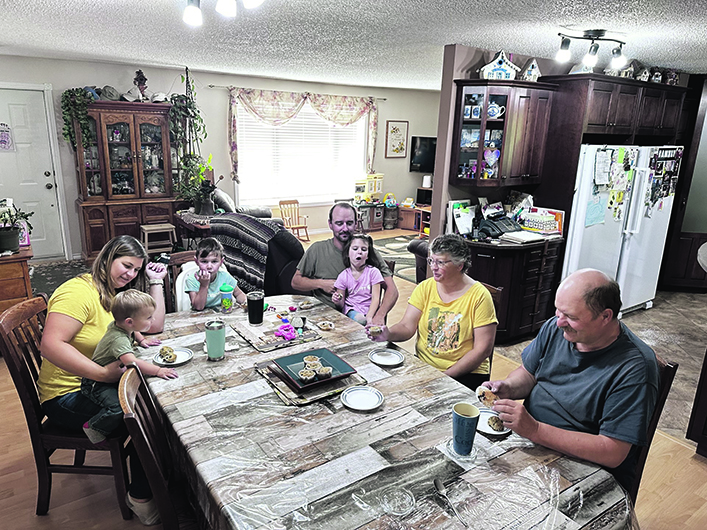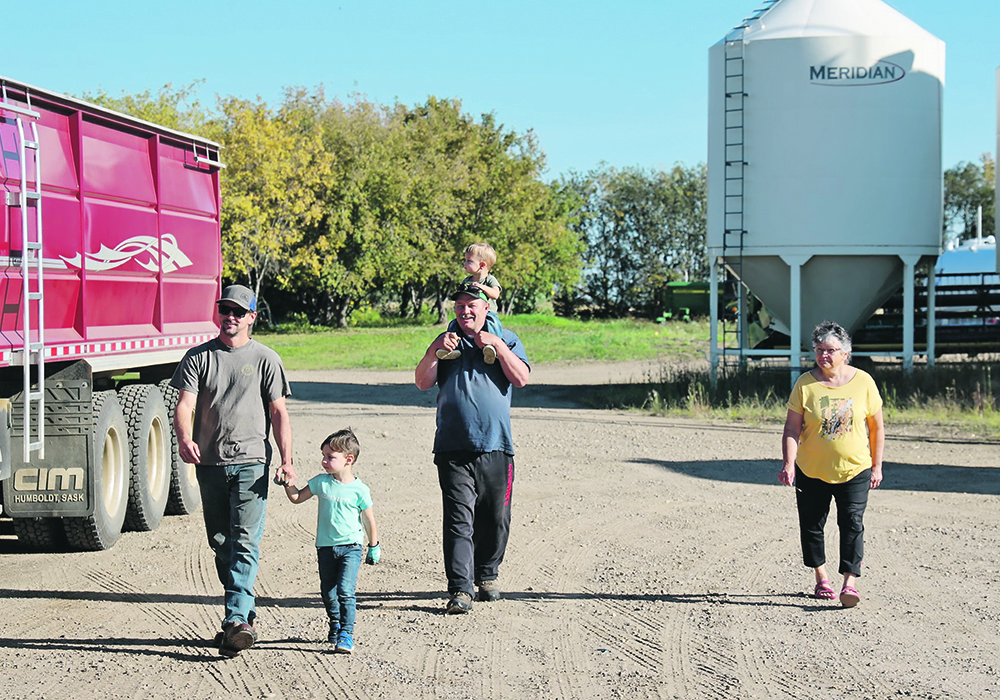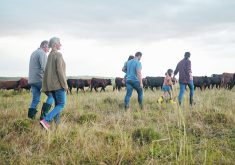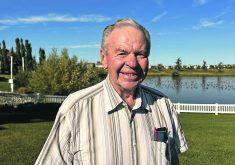A good place to start when beginning a farm succession plan is to determine what every family member intends to do in the future
THORHILD, Alta. — Six years ago Harry and Barb DeWindt ordered their three daughters and families to a mandatory meeting at the farm with no hints about the topic.
“We are all sitting around the table. One said, ‘are you dying?’ No, I just want to ask you one question all at the same time. Who wants to farm?” said Harry.
It was a blunt question and they received two no’s and a yes.
“That was how we started the farm succession process. If nobody wanted to farm, I would have sold it. I am not going to be the one who is farming by myself at 80 years old,” he said.
Since that initial meeting, Barb, Harry, their daughter Renee and son-in-law Geoff Hoyme have been working with accountants, lawyers, farm management specialists and others toward a farm succession plan. The goal is to allow Harry and Barb to retire, Renee and Geoff to take over and the other two daughters to receive a fair share.
“I have seen places where the kids wanted to farm but the parents wouldn’t give it to them. I have also seen three generations on the farm where there has never been a succession plan and that is not right either.
“Being fair is not being equal. That is the biggest thing we had to get over. They’re taking over the farm, they’re taking over the debt and everything. The other daughters will take what we have outside the farm in cash and insurance,” Harry said.
Transferring shares of the enterprise to the farming children and having insurance for the non-farming children is how Harry’s parents transferred the farm to his generation so he knew it could work.
With the help of accountants and lawyers, farm shares were restructured and a value established. The value of Barb and Harry’s shares are frozen and any growth in the farm’s value belongs to Renee and Geoff.
“If they want to sell, they can. The poison pill in all this is we will still get our money first and they will get the growth from the day they signed. The incentive would be to stay in it as long as they can,” Harry said.
Initially, the intention was for only Renee to work full time on the farm. They built a house nearby and began a family. An uncle, who had been helping during the busy season, wanted to retire. Geoff, a carpenter and heavy equipment operator, quit his job and joined the farm.
“When you take over the farm there is a ton of stuff to learn. It is a very vague template and every year is different. The first four years I started this we had wreck after wreck. Everything I know about farming is because of this family,” said Geoff, who grew up in Grande Prairie.
While farm succession began six years ago, it is only just being completed.
“Every time we sit down to iron it out another curveball comes. It is a lengthy process,” said Geoff, who recommends continuing working on the transition plan and not give up.
“Don’t lose momentum once you start. It is so easy to talk about it and then fall back. Once the ball starts rolling, keep going. The main part is just to start. Don’t talk about it for one year and come back in three years.”
While not all the details are settled, the two couples know continued communication is key to maintaining a good working relationship with the two families.
“We make sure we discuss almost everything. We are all one big entity. Every decision made affects everyone. The farm is still operating as a co-joined effort,” Geoff said.
Good communication can mean discussing daily or weekly plans on the farm, but there are formal stipulations written into the succession contract. These include a unanimous shareholders’ agreement where both families must agree on specific decisions.
For the family it means neither Geoff nor Harry can buy a large piece of equipment without discussing it with the other and both agree on the decision. Also included are scenarios in case of divorce and the sale of the farmhouse in the yard.

“This farmhouse, eventually if they decide to move or go in the grave, logistically it makes sense for Geoff and I to move here. In the event they move out, Geoff and I will sell our house and buy them a new house. It is the transition to take over this house. You can’t just put this house up for sale. That was put in the shareholders’ agreement. It is always put in writing. It is already pre-decided so there is no arguing later on,” Renee said.
Harry’s parents had a successful farm succession plan and both Barb and Harry knew its value, especially when they talked to other farming families who have struggled to give up control or die without a plan and leave a mess.
“One of the big motivators for us to be on top of it was because we have seen some of these families that have been through that and we don’t want to do that. We are trying to be a bit more proactive,” said Renee, who said they received a scare three years ago when Harry was ill and the farm transition plan was still just a plan.
“It is scary to think of not having a succession plan. Dad had a big health scare three years ago and he was basically on his deathbed. Even three or four years since then we don’t have the succession plan done. What really would’ve happened if he did kick the bucket? We were in the transition, but not fully finished. Knowing it takes time and it takes effort means you need to start early,” Renee said.
“Our motivation for it was we are basically just employees of the farm until the succession plan is done. If Mom and Dad decided to sell the farm before the plan is complete we are stuck with what? We have worked for six, seven years on the farm and what do we have to show for it? To do the succession planning gave us more security,” she said.















